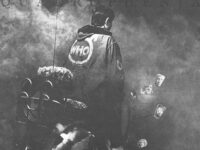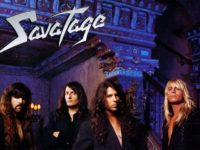Released on October 26, 1973, Quadrophenia has never quite escaped the shadow of Tommy, despite the Who’s more recent efforts to bring attention to this long-overlooked project.
Panelist JC Mosquito certainly had his misgivings about the double album — which actually sold more than Tommy in the states, tying as the Who’s highest-ever charter at No. 2. Still, he now says: “I didn’t feel the urge to turn it off or anything. Maybe opera’s only for old people. Or better yet, maybe it’s only for people who hope they die before they get old.” For our Tom Johnson, meanwhile, Quadrophenia remains “overwhelming … mysterious, like a novel.”
Such is the lasting conundrum of this “other” rock opera, which focuses on the social upheaval in 1960s-era England, as seen through the eyes of a youngster named Jimmy. We decided to take a deeper look at Quadrophenia, with comments from S. Victor Aaron, Tom Johnson and JC Mosquito …
TOM JOHNSON: Though it seems that Tommy is held in higher regard, I’ve never understood it. Quadrophenia comes across like Pete Townshend putting a novel to words or, more likely, spilling his own guts for all to witness while Tommy, well, it’s just kind of a goofy mess. Sure there are autobiographical moments to be had in Tommy, but nothing in the Who’s catalog feels like a memoir quite like Quad. An album that heavily relies on musical callbacks both within the album itself and to their own music (including a couple sly ones to the High Numbers, the name the band went by for a short time). Those are the things that endeared the album to me later on, after I became a big Who fan, but that first time, after picking it up almost on a whim in Best Buy, of all places, not long after the remaster came out in the mid-1990s, that was something else. Shocking, in a way. An album like this is overwhelming. It was mysterious, like a novel, with more complex character growth and story development than I’d encountered in other music. Unlike other concept albums — for instance, Pink Floyd’s The Wall, which was filled with what I like to think of as textural pieces and a handful of songs — Quadrophenia was almost wall-to-wall songs. It was dense with songs and heavy with story, with no hidden meanings and subtexts: It all meant something toward the grander scheme. Like a good book, it’s impossible to just read a passage and move on. You start at the beginning, page one, and go straight through to the end. I’ve made that journey I don’t know how many times since then and it never fails to satisfy.
[SOMETHING ELSE! REWIND: Pete Townshend’s terrific new memoir ‘Who I Am’ boasts a vivid immediacy — not to mention an unvarnished sense of truth telling about life in and around the Who.]
JC MOSQUITO: Since I first discovered them, I’ve always loved the idea of the Who. Their original material (mostly from the pen of guitarist Pete Townshend) always seemed to me just one or two notches smarter than that of most other bands, and on the strength of Live at Leeds, the Who just rocked that much harder than everyone else as well. Imagine my surprise when I realized that the only album of theirs that I could listen to from start to finish was Who’s Next, and as it turned out, that album itself was built on the bones of the failed Lifehouse multimedia concept. Their first rock opera concept album, Tommy, was an interesting idea with a lot of filler. But it was soon followed by the aforementioned Live at Leeds and Who’s Next, so by the time Quadrophenia appeared, there was a heavy sense of expectation: There would be less filler than Tommy; more sonic clout than Live at Leeds; and more story than Who’s Next. And it would be based on history — specifically the mid 1960’s “Mod” era embraced by many British youth as a fashion and lifestyle movement. Unfortunately, at the time Quadrophenia disappointed on many counts: the filler was still there — just masked in wordiness; the wordiness didn’t tell much of a story; and the lack of story just accentuated the musical irony of successful, 1970s rock stars attempting to write a serious project about mid-1960s youth, who in their time would have laughed at the idea of “rock opera” and would have been happier with any old three-chord R&B record of the week. It was a difficult question: How hard was this going to be to get across to the audience? Look at it this way: there was even a short story/monologue printed on the inner sleeve, just in case the lyrics got in the way of the plot.
And now, our thoughts on the songs …
S. VICTOR AARON: You how some rock songs make you wanna go out and get an electric guitar and learn to play it? Entwistle on “The Real Me” makes me wanna go pick up electric bass. But alas, all the practicing in the world probably wouldn’t be enough to master that clinic.
JC MOSQUITO: Supposedly the material on this album didn’t fit Roger Daltrey’s range and style but I’d disagree; he sings well throughout and nails this opening song in one of his best vocal takes ever.
TOM JOHNSON: While the lyrics are all about introducing the various facets or maybe personality issues of the main character Jimmy, this tune is all about John Entwistle’s bass. It is, for all intents and purposes, a bass solo surrounded by a song, and it sprung up by accident – just John messing around in the studio, and it happened to be perfect on that first take. A much later version released on the Maximum R&B box (with Kenny Jones on drums) with more straight-ahead playing from The Ox shows how important Entwistle’s wild, free-style riffing is to this tune (not to mention Keith Moon).
[SOMETHING ELSE! REWIND: The Who’s long, long … long … awaited 2006 comeback ‘Endless Wire’ was worth it — for “Fragments,” and maybe even for “Fragments” alone. It was that good.]
TOM JOHNSON: This acts as an overture to introduce the themes that will tie the album together and always strikes me as one of rock’s more overlooked instrumental greats.
S. VICTOR AARON: This songs hits all the touchpoints of a classic Who song — Moon’s ever-tumbling drums, Entwistle’s active bass line crawling up to the upper register, Townshend’s charging guitar and Daltry’s snarling vocals.
TOM JOHNSON: One of Pete’s great quiet-to-loud rockers. Jimmy is feeling lost, realizing he is no longer as in with the in-crowd as he once was. Probably a universal anthem for anyone who has never felt a part of anything, really.
[SOMETHING ELSE! REWIND: We retrace the power and the glory of Pete Townshend and the Who, from “I Can’t Explain” through to a memorable cut from ‘Quadrophenia’ and onto “Eminence Front.”]
TOM JOHNSON: Once the horns get in your head, will you ever forget them? That’s John Entwistle, in case some out there don’t know, overdubbing a handful of horn parts to get that sound. He may have been a genius bassist, but he was no slouch on french horn, either, and that talent was put to good use here. There’s also that great brass line in the song that gets repeated a few times through the later parts of the album.
JC MOSQUITO: Gotta love the horn section, courtesy Mr. Entwhistle. He didn’t get to write anything else.
S. VICTOR AARON: Townshend’s synth parts combined with the real horns of Entwistle helped to bring out the R&B element that’s always unpinned their music. Same goes for “Drowned.”
S. VICTOR AARON: Musically a rewrite of “Won’t Be Fooled Again,” the dynamic moods and tempos makes this lock a rock opera within a rock opera. Townshend’s guitar work sparkles on this one.
[SOMETHING ELSE! REWIND: An all-star tribute album titled ‘Who Are You’ found seemingly incongruent artists successfully combining, while others turned familiar tunes inside out.]
JC MOSQUITO: Gets on the highlights list just because of Keith Moon’s lead vocal take in the chorus.
S. VICTOR AARON: No one can pull off an exaggerated British accent better than a Brit.
TOM JOHNSON: Featuring one of Roger Daltrey’s finest vocal performances, this is devastatingly powerful. It’s desperate and raw, just like our anti-hero Jimmy is by the end of this story.
S. VICTOR AARON: Daltrey’s tour de force. His voice is shot now, but it was well worth full-throated performances like this one.
JC MOSQUITO: It sounds great, even if it leaves the plot dangling: Is he dead … or dying … or simply being reborn? Or is it an allegory for the Who itself?




